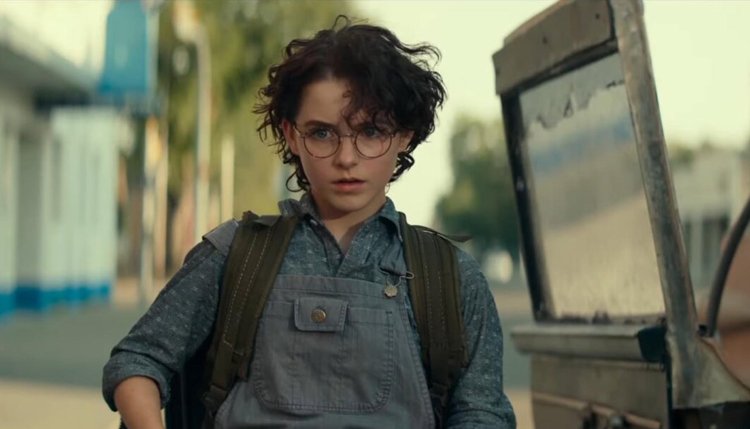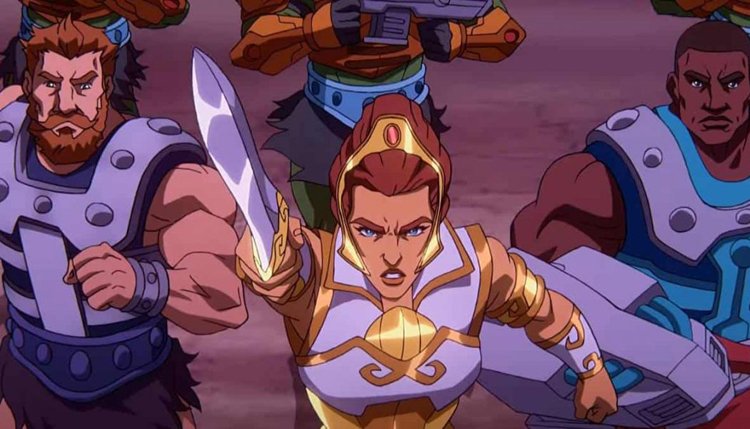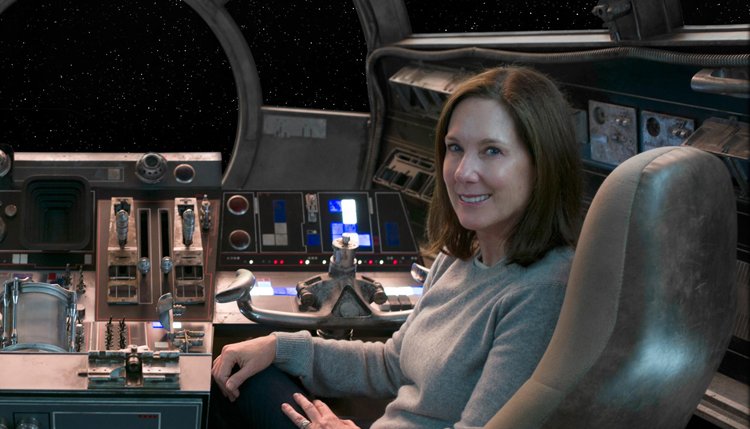“The Falling Rocks of Fandom”
Something terrible is happening in fandom; in the respective communities whether they herald Star Trek, or Star Wars, or Harry Potter, or Twilight, or any beloved franchise. Divisions, unbecoming of the enthusiasm we all once shared when we were given new product to consume, are destroying us as they destroy other groups. Social Media has only made it worse because it has given everyone (even the most insignificant) a voice to rival the most powerful.
It’s a mixed blessing, to be sure, but there doesn’t seem to be a filter, or an internal monitor; something to tell people when they’ve gone too far. This is where the real toxicity lies. It used to be that you would have differences; fruit ripe for discussion, and people would walk away wiser and better for having known a differing opinion. It’s gone now, and it’s replaced with bile, confirmation bias, and personal attacks. This isn’t all the fault of the fans.

Much of the blame should be heaped upon those given the keys to their kingdoms. The businessmen. The committees. The elite in charge of the culture. Who are they? They certainly aren’t experts, and they certainly aren’t storytellers. The bottom line must be considered, and the money must be made, even if the cynical disguise themselves as the artists. They make movies to cash in on nostalgia. They’re not interested in telling compelling stories.
They want to make money, and they don’t care how they make it. There’s a lot of anger in fandom; anger for those in charge of the culture. They want to see “them” fired, or strung up, or run out of town. They invent stories about perceived failures and imminent dismissals. I can’t tell you how many stories I’ve read about Kathleen Kennedy’s failure, and how she’ll be asked to resign next week. Guess what? It never happens. It will never happen (unless she does something absolutely unforgivable such as producing a movie that flops).

Kathleen Kennedy may be one day remembered as the woman who “destroyed” Star Wars, or she’ll be looked upon with not-so-bright eyes as a monster, but it changes nothing. The truth is she made $6 billion for Disney in four years. That’s called a success. An incredible, rip-roaring success, but still people believe she will be fired next week. It’s not going to happen. Maybe it’s time to move on. Do something else. Invest in something else.
Star Wars was part of my childhood. It was my childhood. The great writer Fran Lebowitz once said something to the effect that everything is better when you’re young. Even the things you didn’t like (at the time) now suddenly take on a reverent, spiritual approval. Being young brought about a sense of discovery. It was about finding treasures. Everything was a new experience, and life was an incredible journey, fraught with detours and jagged cliffs and falling rocks. Everything is better when you’re young. Star Wars was better when you were young. Ghostbusters was better when you were young. There’s nothing you can do to replicate those feelings, except possibly … have children, rewatch those movies and TV shows through the eyes of your children. Maybe you can relive those memories through them. That’s what I try to do, even if my daughter doesn’t get it. It’ll never be as good as it was when you were young.
Most of the comments I receive for my reviews are positive and complimentary, but recently (after I published my first Prodigy review), there were some intriguing deviations. There is a rule I observe that goes something along the lines of, “If they agree with you, you’re brilliant. If they don’t, you’re an idiot.” Most readers were willing to give Prodigy a shot, but a few … disagreed, I guess you could say. Some people thought I drank the Kool-Aid, as it were; surrendering to the absurdity of “NuTrek,” as they call it.

I stressed in my review that Prodigy was not “woke” or drenched in a smug sense of undeserved superiority. This is a good thing, but some people refused to believe it. It was then that I suspected fans had been down so long, they didn’t know which way was up. Okay, that’s fine, but do we have to get personal? Are people’s opinions indicative of their intelligence? Do you know when you smell an idiot? I don’t think you do. Idiots hide in plain sight, and they certainly don’t trouble themselves to post opinions online, no matter what anybody might say.
The fandom is fractured by people so afraid to understand differing points of view that it’s easier to call names and hurl insults. The content creators on the other side of the divide have become emboldened by these unsettling pop culture civil wars. They get paid either way. I know it’s probably been said before but one fan’s enjoyment is not another fan’s displeasure. Nobody wins this game. In fact, everybody loses. Everybody, that is, except for those who make their money off our backs. They might actually be laughing all the way to the bank.
It’s sort of a mindblower for me, like how could you get so angry with your fellow man over a product created primarily to generate money? I mean, they’re not doing it for your health. They’re not doing it to make you happy. People get so angry; it would be funny. You could laugh at people (if they didn’t get so easily offended like everybody seems to be these days) for sensitivity’s sake. Somebody will tell you, “Oh, people are so sensitive,” and then, if you disagree, they’ll get upset (with nary an “irony detector” in sight) for crying out loud! What’s up with that?

The “psychology” of a fan bears study. The only fan I can study is myself. If I felt uncomfortable because of changes made to a franchise I held dear, or of a character I once admired (“myself” and I are old companions), it would be because I never wanted there to be meaningful change. I don’t want the characters I love to evolve beyond what I can comfortably expect. I want to be constantly reminded of my youth; the days when I was young, and I could still enjoy that sense of discovery.
If things change, I suddenly become an old, decrepit man now firmly reminded of my waning years and mortality, and I don’t want that. Hence, everything must stay the same. Everything must stay rigid. I don’t approve of the “inorganic” change either. To me, it feels forced and unhealthy. It smacks of trend-hopping and current politics. I don’t like that either. So what do I like? I don’t know anymore. If there’s nothing new under the sun, and nary a drop of originality left in Hollywood anymore, I guess I still have my blu-rays and DVDs to fall back on.

I can’t rely on streaming, because product can disappear, even though I’m paying a hefty premium now (including an inexplicable sales tax) and I should have access to everything I would ever want. Hollywood doesn’t want you to own anything anymore. They want you to rent with the expectation you’ll be required to surrender the product on their terms. That’s the nature of the beast in 2024, and fandom presents its peculiar pitfalls because everything has been done. Every story has been told. Now, it’s all variations on themes. Originality is dead.
Those of my generation should be proud they lived through a time of fantastic cinema and television. They lived through record and video stores, landlines, and drinkable tap water. We saw it all. We probably lived it all. Our generation lived through so much, it became necessary for Hollywood to start exploiting us, but because they are neither experts nor storytellers, we can see through these cynical attempts to separate us from our money. We’ve learned to smell the phonies in life, the inauthentic, the scavengers, and the dishonest. That’s one good thing. At least I hope.
Originally published January 14, 2024. This reprint is dedicated to Second Union readers. Give me your worst.

